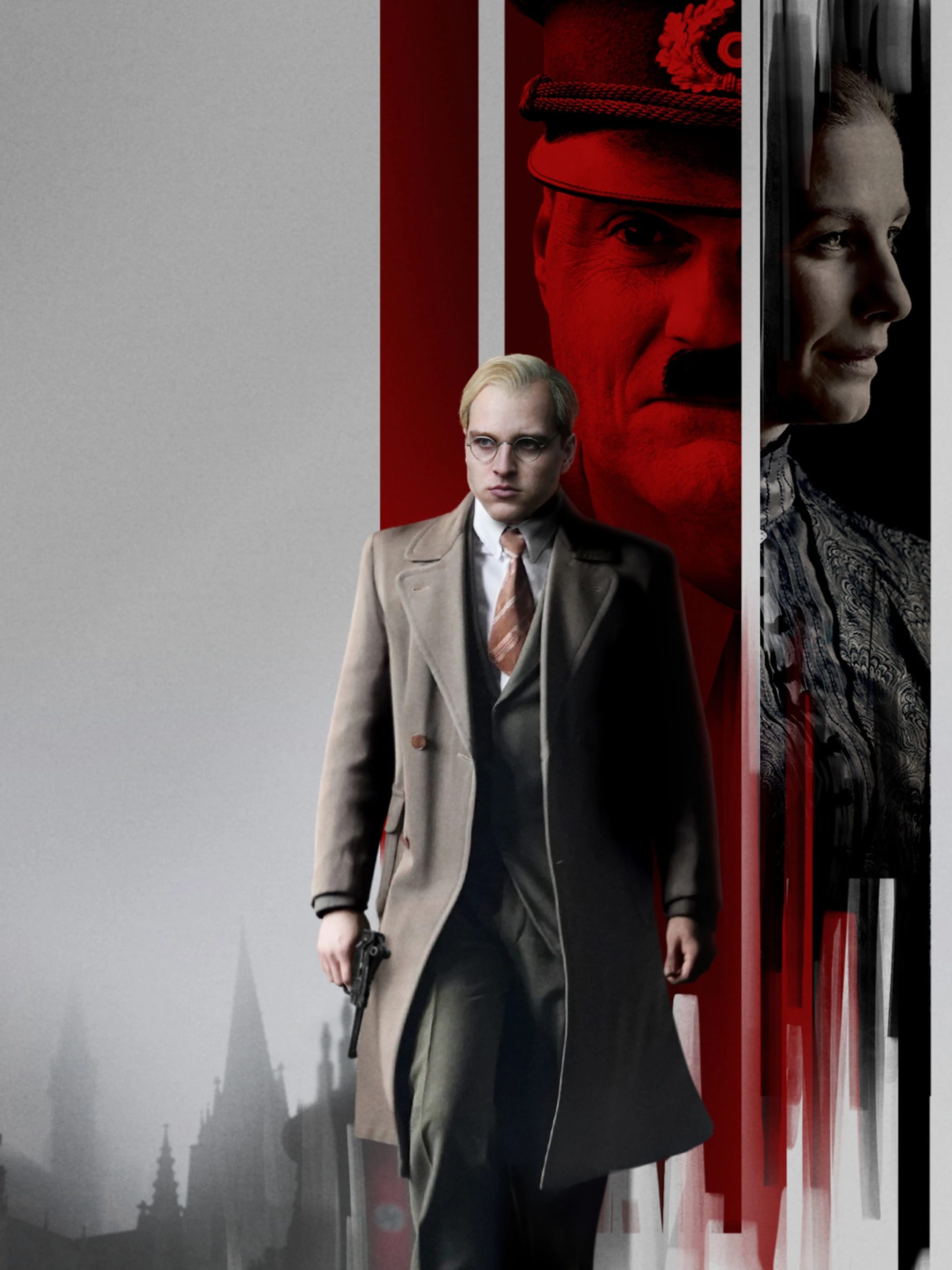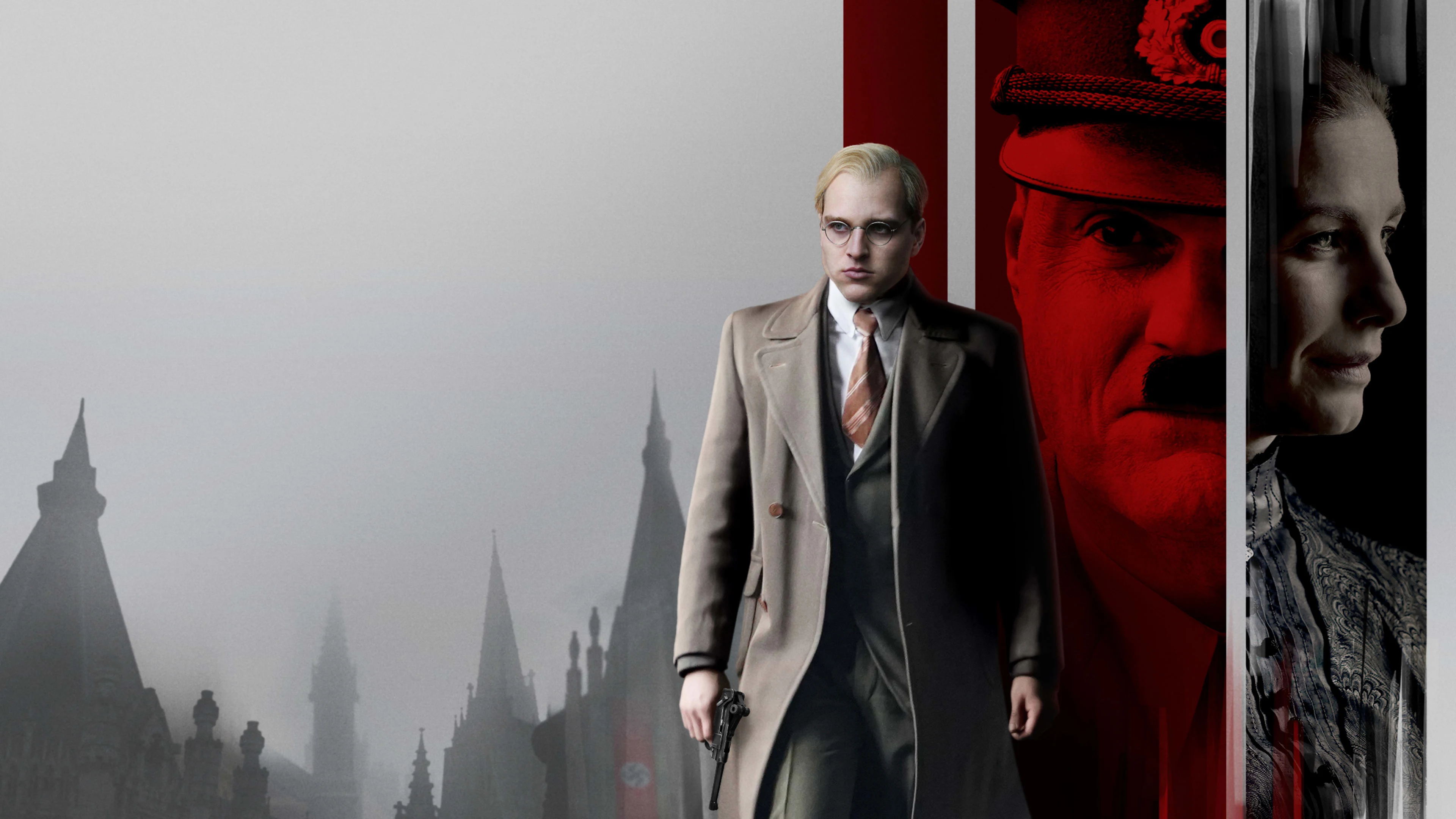What's True in Bonhoeffer: Pastor. Spy. Assassin.?
Bonhoeffer: Pastor. Spy. Assassin. follows the epic true story of Dietrich Bonhoeffer as he joins a deadly plot to assassinate Hitler, risking his faith and fate to save millions of Jews from genocide.
We spoke with the filmmakers to learn the true story behind this film. Read on to discover what’s true and what’s been fictionalized in the movie Bonhoeffer.
WARNING: This article contains spoilers!
Q: Did Bonhoeffer really move to New York City, meet Frank Fisher, and attend his church?
A: Yes. He moved to NYC, attended Union Seminary, and was taken to Harlem by Frank. He really did attend Frank’s church, Abyssinian Baptist Church, and he taught Sunday School there.
Q: Was Bonhoeffer really a talented piano player?
A: Yes. Bonhoeffer was a great pianist and, in fact, his family thought he was going to be a concert pianist.
He did not, however, go into a Jazz club and jam with black musicians, but he certainly had the talent to. That is ... a wonderful film metaphor to show that Harlem became a part of him and changed him. He did love Negro Spirituals and bought the LPs to bring back to Germany. He often played the music for his students at Finkenwalde. He also attended the Jazz shows at Small’s KO room, as depicted in the film.
Q: Did Bonhoeffer really share a jail cell with Dr. Sigmund Rascher?
A: Yes, for a time near the end of his life when they were traveling in the bus on their way to Flossenburg Concentration Camp.
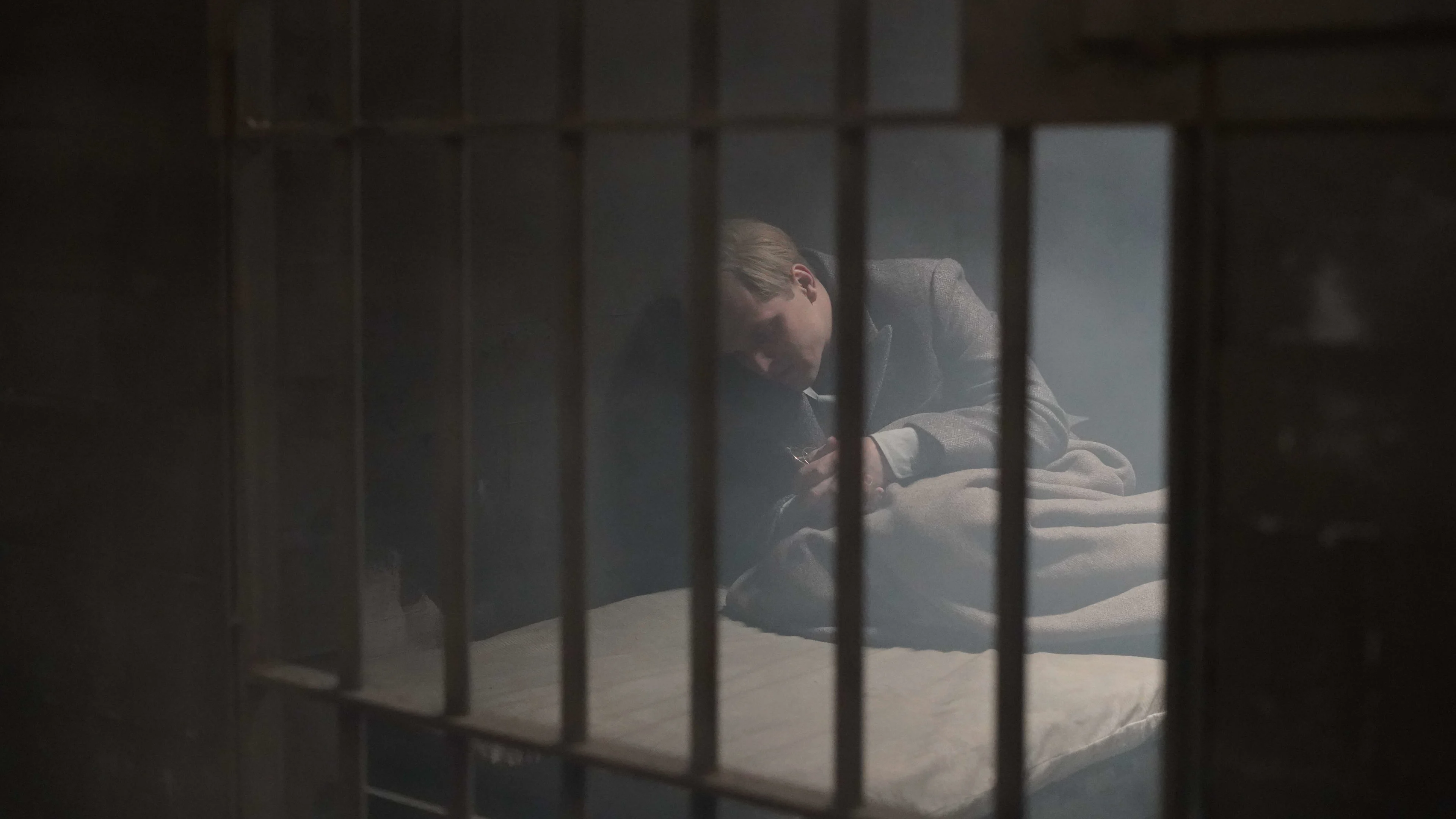
Q: Was the Gestapo present when Bonhoeffer gave his sermon condemning Hitler and the Nazi regime?
A: Kind of. In this scene, we are re-creating the sermon that Bonhoeffer preached at Kaiser Wilhelm Memorial Church at Jacoby’s invitation. In real life, it was Reformation Sunday, commemorating Martin Luther and it was a big holiday. This church was also President Von Hindenburg's church, so Nazis would have been there and Bonhoeffer's sermon was very insulting about the church.
In the film, we have married two sermons that Bonhoeffer gave very close together. In real life, he said that the church was dead and that they had ”forgotten their first love." People would have been very upset. The other thing [we] did is incorporate a sermon Bonhoeffer preached on the radio, warning people against making Hitler an idol. The radio was mysteriously shut down as Bonhoeffer started criticizing the Fuhrer. Bonhoeffer was beginning to speak out and get noticed. We set these two sermons in the church.
Q: Did Bonhoeffer and Martin Niemoller work closely together, as shown in the movie? Was Niemoller actually arrested right after giving his famous speech?
A: Yes, they worked together closely, but Niemoller was not Bonhoeffer's superior. He was a prominent member of the Confessing Church. Please note that Niemoller was a member of the Confessing Church only much later, as depicted in the movie. As in the movie, Niemoller supported Hitler early on, and enjoyed the filling of the churches. Only later did he come around to Bonhoeffer's point of view.
Niemoller would often tease the Nazi’s from the pulpit when they came to his church, asking parishioners to pass them a Bible, etc. He was very bold and was finally arrested and spent eight years in a concentration camp, but not after that speech. That speech in real life is a famous poem, not a sermon, and it was written by Niemoller when he was in the concentration camp. Today it is on the wall of the Holocaust Museum in D.C.
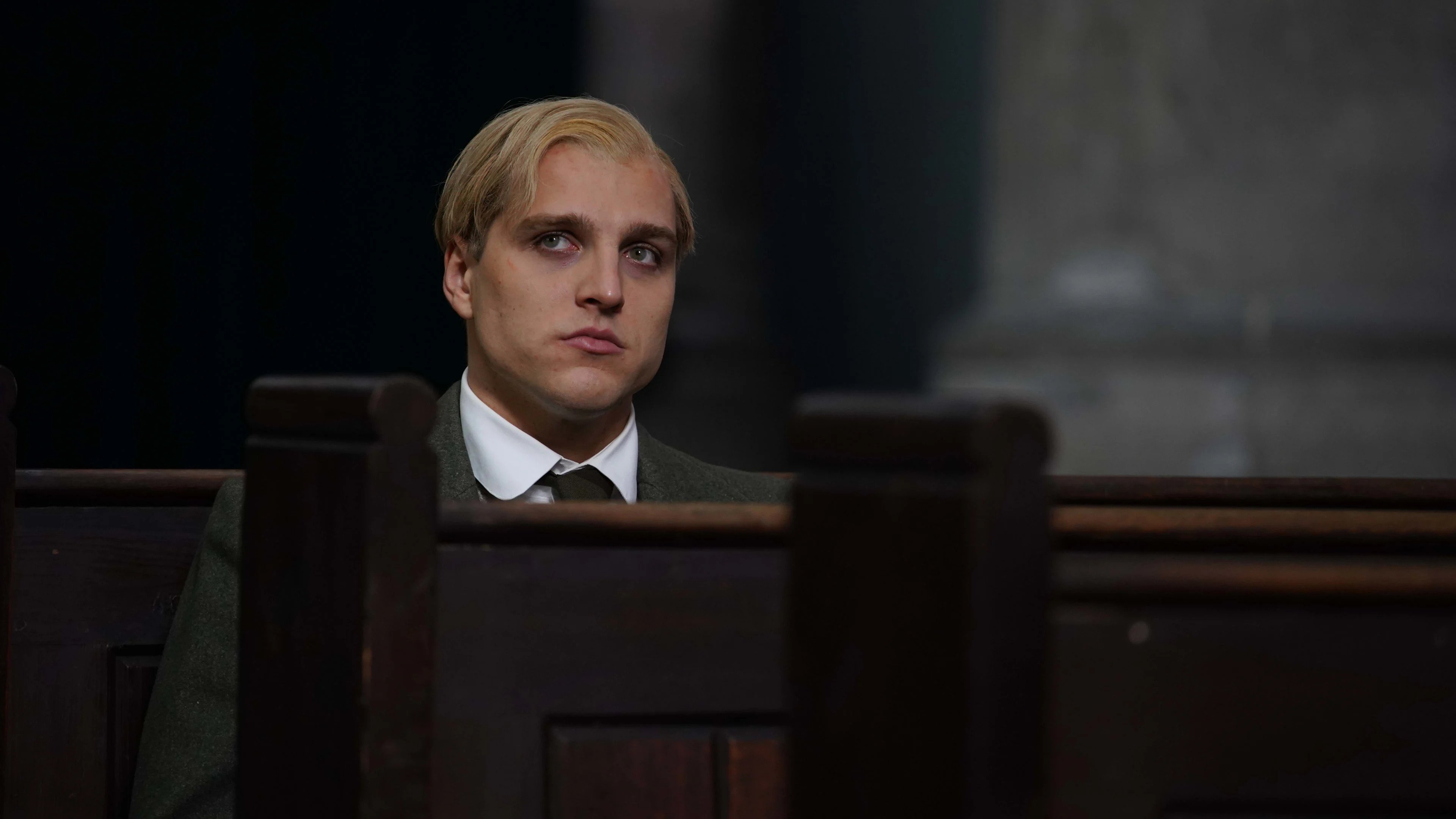
Q: Was Bonhoeffer's brother-in-law Hans actually involved in plotting Hitler's assassination?
A: Yes, he was very much involved in all the resistance and was pretty high up in the Abwehr (German Military). He was also very close to Bonhoeffer and felt he could confide anything to him.
Q: Did Bonhoeffer actually go to England to convince Bishop Bell and the Church to speak out against Hitler?
A: Yes, but not exactly the way we show it. This scene is covering a lot of factual ground.
Bonhoeffer was stirring up things in Germany. His sermons and writings made lots of enemies, plus he had spoken out about Hitler on the radio program right after Hitler got elected and was fighting the new Reich Church, unwilling to bow to all of its heresies.
It is true that Bonhoeffer knew Bell and became close to him. He would meet Bell occasionally and feed him information, which Bell would then share with people high up in the government about what was really happening in Germany.
In 1934, Bell had a document, "The Barmen Declaration," printed in the London Times. This was mostly written by Karl Barth. So in our scene we made the document a combination of two works that Bonhoeffer wrote that caused a stir: "The Essay on the Jewish Question" and "The Bethel Confession." We also paraphrased one or two sentences from "The Barmen Declaration."
Q: Did Winston Churchill really read the Church’s condemnation of the Nazis in the newspaper? Did they really try to involve Churchill in their plot to assassinate Hitler?
A: No, Churchill did not read the newspaper article, but they did try to involve Churchill in their assassination attempt. Bonhoeffer later asked Bell if he would, through his contacts, see if Churchill would be willing to help the resistance and help bring about a new government. Bell did pass along lots of information as to what was happening in Germany. Very little info was getting out of Germany. Bonhoeffer's requests, which were passed directly from Bell to Churchill, were ignored. So Churchill did refuse to help the resistance, as depicted in the film.
Churchill was not interested in the conspiracy once the war progressed; he had to concentrate on the total defeat of Germany, so he refused to help.
Q: Did Bonhoeffer and Hans help a group of Jews escape to Switzerland, and did they really pay off the border guards?
A: Yes. Hans actually drove them to the border without Bonhoeffer, but Bonhoeffer arranged for the money because the Swiss wanted money to take in these Jews. They weren’t paying off border guards, they were paying off the Swiss. It was called Operation 7.
It was not done as a test from the Abwehr, it was conducted secretly by people in the Abwehr working against Hitler, like Hans. The Jews were not picked from a concentration camp, they were friends who would most certainly be sent to the camps.
The part in our movie about Hitler picking healthy Jews pretending that Jews were well cared for did happen in the war. We have put those two things together (Operation 7 and the way the Nazis would pick healthy Jews to fool everyone into thinking Jews were not mistreated).
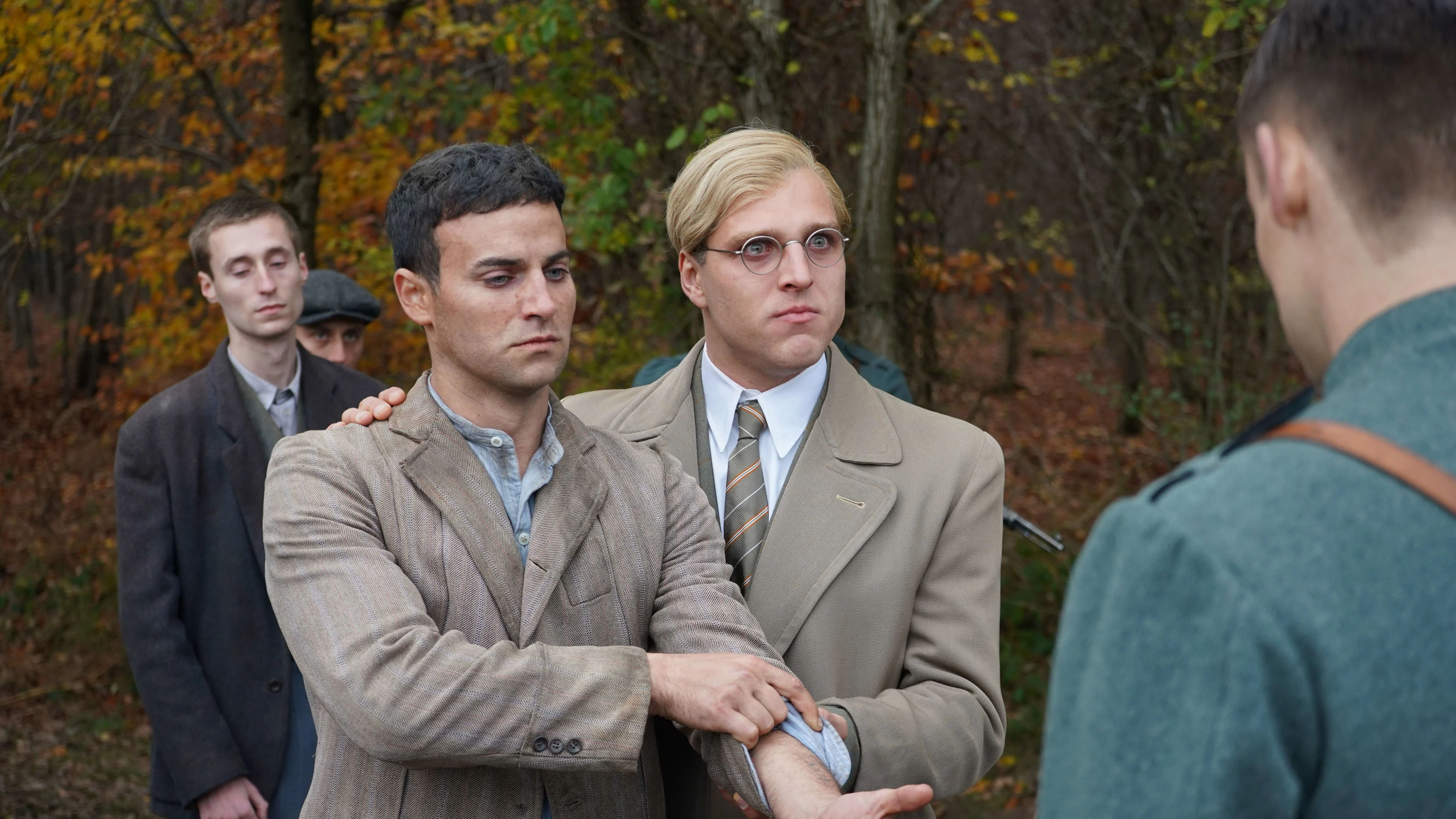
Q: Did Bonhoeffer’s seminary Finkenwalde actually get burned down by Nazis?
A: No, it was closed down.
Q: Was the assassination attempt on Hitler depicted accurately? Are there any additional details?
A: Yes, it was accurate, but it happened later around 1942, not when Bonhoeffer was in America in 1939. There were many attempts on Hitler's life. This is a famous one called The Gersdorf Bomb Plot, named after the man who wore the bombs. It happened just the way we show it.
He miraculously was able to deactivate the bomb in a bathroom after Hitler left early. This is not the assassination attempt that Bonhoeffer was hanged for. That one was the Valkyrie plot later in July 1944.
Q: Did the Nazi prison soldier (Ansel Knoblauch) offer Bonhoeffer an escape plan and he rejected it?
A: Yes, and his name was really Corporal Knoblauch. It was at Tegel prison, which was the first prison Bonhoeffer was in. In the movie, we made it a little later when he was on route to Flossenburg.
Knoblauch met Bonhoeffer at Tegel and was very taken with his kindness, the comfort he gave other prisoners, his humility. etc. It was not hard for anyone to like Dietrich.
Bonhoeffer made an impression on everyone he met. Many of the guards grew to like him and respect him, and Knoblauch was one of them. Knoblauch proposed a plot to smuggle in a mechanics uniform and Bonhoeffer would walk out with Knoblauch at the end of the day. Bonhoeffer considered it and plans were made to get the uniform, papers, and money, but he refused the idea in the end because it would jeopardize his family. We tell the story very much the way it happened, with the same details, only this really happened later in his life.
So Dietrich had two chances to escape and refused both. One was the attempt just described, and the other was when he was safe in America but felt he had missed God and should go back to be with his countrymen to suffer with them, even if it might mean death.
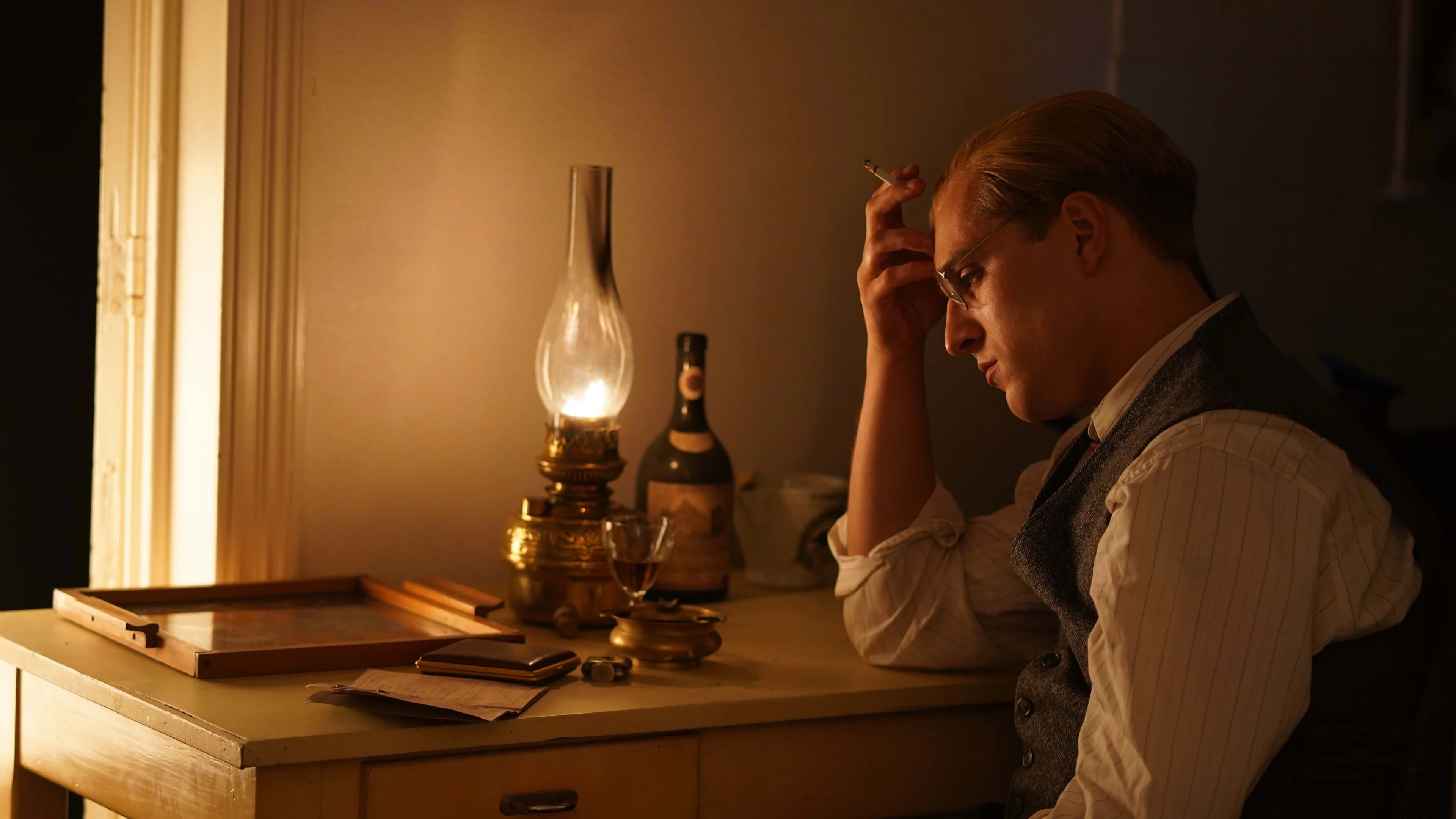
Q: Did Knoblauch really return Bonhoeffer’s Bible to him? Did Bonhoeffer ask him to give it to his mother before his execution?
A: No, but many of Deitrich’s writings were written in prison and were smuggled out by various means. Having Knoblaugh be the carrier is a metaphor. Since Knoblaugh was the one who offered Dietrich an escape plan, it seems fitting that he would be willing to get Bonhoeffer’s words out into the world. He loved Bonhoeffer.
Q: Was reciting the Sermon on the Mount really Bonhoeffer's final words?
A: No, but Bonhoeffer loved the Sermon on the Mount and wrote and preached about it a lot. His last words were really this: ”For me this is not the end, but the beginning of life.“
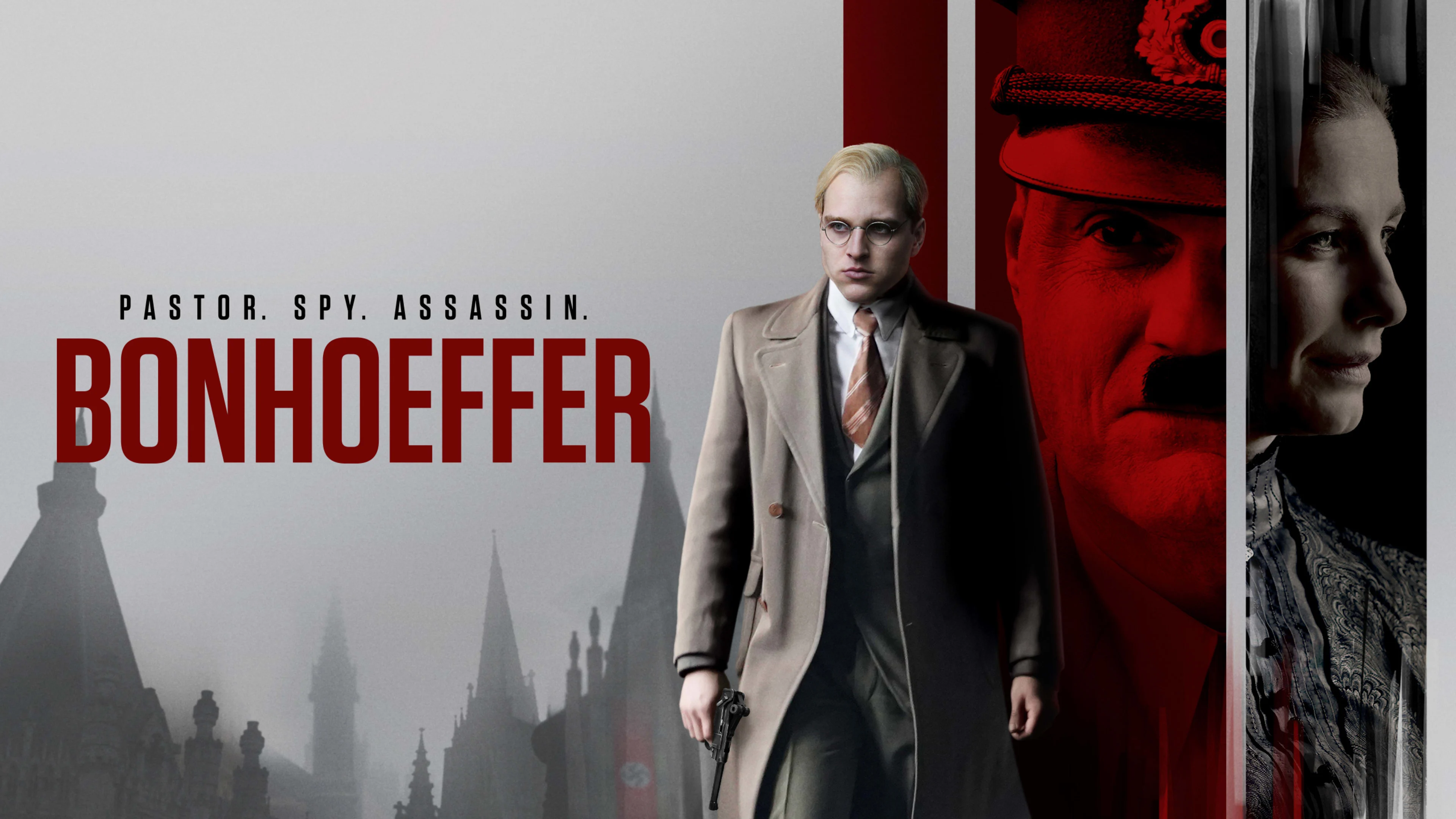
Join the Guild to Unlock Masterful Storytelling.
Help Transform the Industry.
Your membership directly contributes to the production of films like Bonhoeffer, allowing filmmakers to tell more stories that uplift, entertain, and amplify light.
